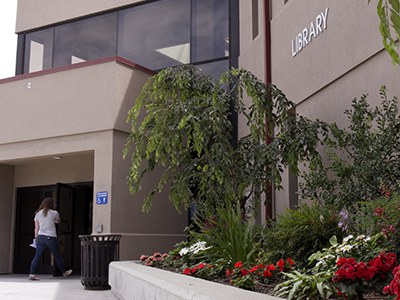
Open Educational Resources are open source materials used by colleges across the U.S. including MIT, Stanford University, the California State University system and TMCC.
An upcoming professional development workshop highlights the increasing use of open-source material worldwide, including how faculty and staff are expanding the use of Open Educational Resource (OER) texts at Truckee Meadows Community College.
“OER can be of high quality and students don’t bear the cost of these texts,” said Patricia Miller, English Instructor. “They are available for use and customization at no charge to students and professors, although sources need to be properly attributed.”
Miller has adopted OER materials for her English 107: Technical Writing course. She is one of the co-leaders for the pre-Fall TMCC professional development class on this topic. Pat Jarvis, WebCollege Instructional Designer and Neil Siegel, Resource Librarian, are presenting along with Miller.
- When: Thursday, Aug. 25, 11:30 a.m.-12:30 p.m.
- Where: Elizabeth Sturm Library, room 106
The Open Educational Resources workshop will demonstrate how College staff members are identifying and adapting quality OER. Jarvis, who has presented sessions about attribution at Distance Education (DE) seminars will also cover this sub-topic.
New, printed Technical Writing textbooks typically cost from $30–$140. Miller has transitioned to OER which, in addition to being available at no cost, may include superior features.
“There are many writing ethics concepts also embedded in the OER materials that I’ve found,” she said. “There are peer-reviewed instructional materials, along with test banks, quizzes and suggested activities. If students would like to see samples, they are searchable in the peer-reviewed Writing Commons.”
Siegel agrees that the open-source texts are progressing into widespread use at U.S. colleges.
“OER is a great opportunity to save students money and pave a more ‘green’ avenue toward completion and graduation,” he said. “OER includes peer-reviewed texts and engaging content that students enjoy working with. Respected universities have adopted OER, such as MIT with their OpenCourseWare, OCW.”
Class Discussion
“Nothing is free, artists and writers should be paid for their work; but in this instance, students don’t bear the cost of the texts,” Miller said. “It creates a lot of interesting discussion in class.”
She said that sometimes it is preferable to have a printed handbook on a student’s bookshelf, but many handbooks are available with a less expensive price tag.
“Also, some people do need a textbook if they don’t have easy access to the internet,” she said.
Jarvis notes, though, that the movement toward open source materials is solid and is growing throughout the nation’s colleges, including at Stanford.
“Now there is much quality text—the California State University Merlot site is maintained by CSU and is peer-reviewed," she said. "The U.S. Department of Labor has aided 256 institutions with Trade Adjustment Assistance Community College and Career Training (TAACCCT) grant funding to help create OER for career and technical education (CTE) programs. This material will be licensed by Creative Commons for sharing.”
OER Is More Than a Trend
“It’s not a trend; the idea has become widely accepted and is here to stay,” she said. “OER hasn’t found all of its niche uses yet and there will be a lot of development.”
Jarvis and Siegel see the evolution of OER taking place with librarians helping busy faculty members identify credible sources and sites. Instructional designers will then help set up coursework at a workable pace based on instructor needs.
“For someone new to open source, it’s time-consuming to find this material—but librarians are trained to research,” Jarvis said. “Instructional designers can make the materials ready for the professors. It can be done one chapter at a time.”
LibGuides Being Developed at TMCC
TMCC has an OER overview website in place to help staff with small or large OER projects.
John Fitzsimmons, Reference Librarian, also works with faculty to build online research banks called Library Research Guides (LibGuides).
“I’d be happy to work with faculty to create more LibGuides for topics classes or assignments,” he said. “One excellent example is the Logistics and Supply Chain Management LibGuide that is already online for students in our new bachelor’s degree starting this Fall.”
For more information about OER, please contact Miller, Jarvis, Siegel, or Fitzsimmons. For members of the TMCC community, registration for the OER workshop is through TMCC's Professional Development Office.






